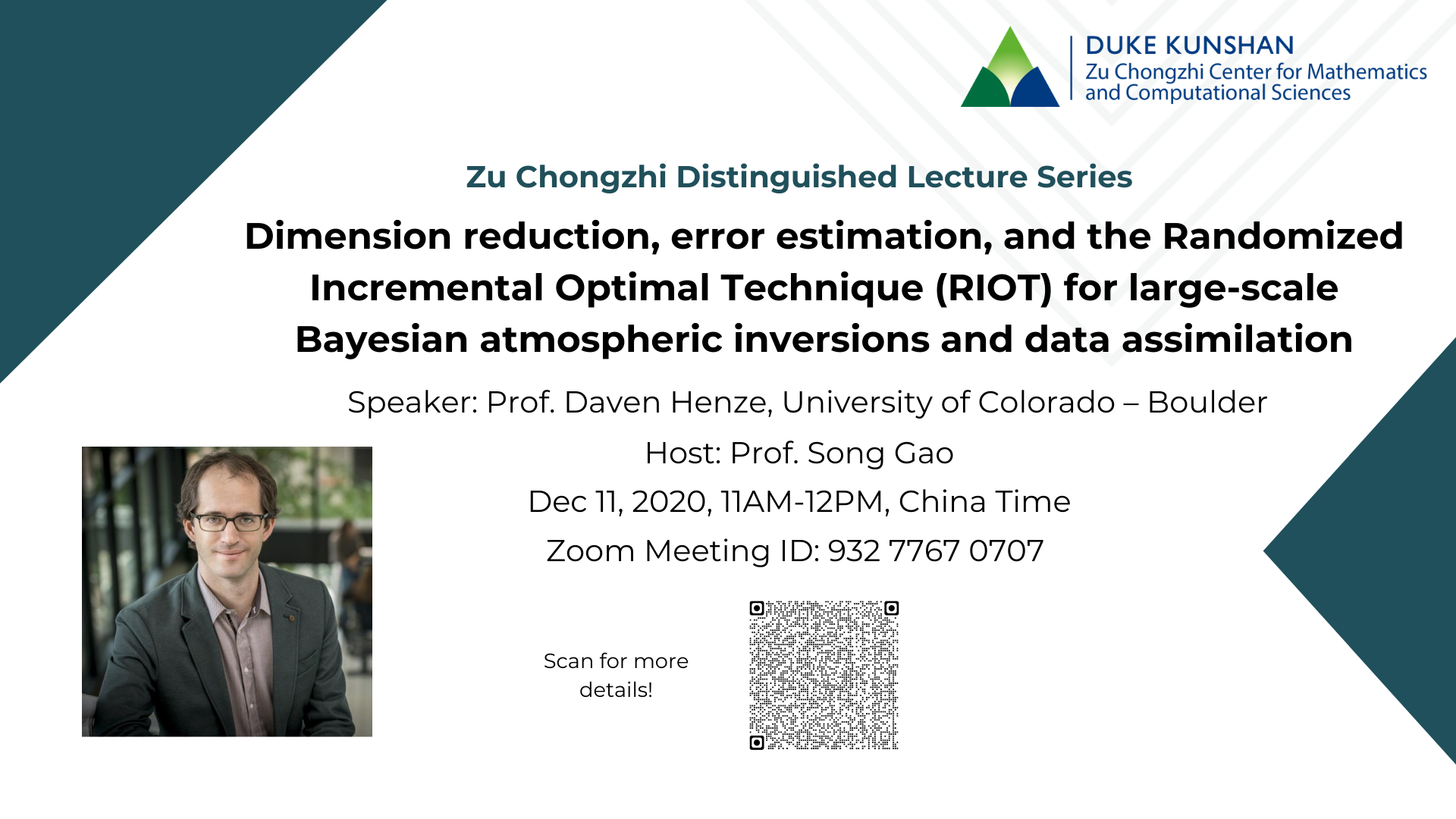Dec 11, 2020
Dimension reduction, error estimation, and the Randomized Incremental Optimal Technique (RIOT) for large-scale Bayesian atmospheric inversions and data assimilation
Daven Henze, University of Colorado – Boulder
Abstract:
Data assimilation is the process by which observations and models are used to jointly estimate the state of the atmosphere. Driven by advances in numerical weather prediction, such approaches are increasingly being applied to constrain atmospheric chemistry models. Here we present recent work describing theoretical studies to advance such applications four-dimensional variational (4D-Var) techniques. Hybrid adjoint and stochastic simulation techniques are developed for evaluating the posterior analysis error of an assimilation – a critical property that quantifies the impact of observations on reducing uncertainty in model estimates. This approach is applied to quantify the information content of current and proposed satellite remote sensing instruments for detecting CH4 sources in North America. We then present recent theoretical developments in defining optimal basis sets for large-scale Bayesian problems. We then demonstrate how Monte Carlo simulations can be used to efficiently compute these basis sets using a new Randomized Incremental Optimal Technique (RIOT), reducing the wall-time of a regional inversion of BC emission by a factor of 5 – 10, and how these findings are relevant to improving operational Bayesian forecasting systems in general.
Recorded video for the talk (click)

